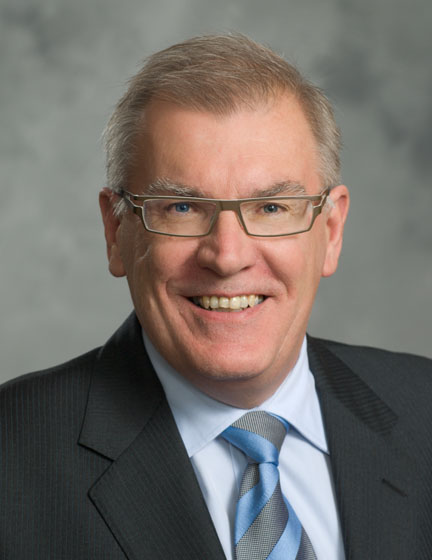After 40 years with the Vancouver office of Borden Ladner Gervais LLP, Gerald Ghikas is leaving the firm to join the new Vancouver Arbitration Chambers and establish an independent practice as an arbitrator.

Ghikas and litigator Murray Clemens will be the VAC’s first two resident neutrals at the chambers, which will begin operations Jan. 1, 2013 from a suite of offices in the HSBC Building in downtown Vancouver. By mid-2013 adjacent space will be re-developed to create a state-of-the-art hearing facility to be known as the Vancouver Centre for Dispute Resolution.
Ghikas is currently chairman of the international trade and arbitration practice of BLG and will retire from the firm Dec. 31. He will be succeeded in the position by Robert Deane.
Clemens is a partner of Nathanson Schachter and Thompson LLP, a litigation boutique in Vancouver. He will remain associated with his law firm.
Spencer Charest and Tony Lutz, the entrepreneurs behind both the chambers and the new VCDR, are best known as the founders of Charest Reporting Services. Charest Reporting will continue its court reporting business at its present location.
“In addition to a select group of resident neutrals, Vancouver Arbitration Chambers plans to offer non-resident memberships to other practitioners who have frequent requirements for hearing facilities in Vancouver,” explained Charest.
The VAC will provide office accommodation and support services for up to five independent resident arbitrators and mediators, as well as space for visiting neutrals using the hearing facilities at VCDR.
When it opens the VCDR will include seven hearing rooms capable of accommodating up to 40 participants and provide access to breakout rooms, catering facilities and a range of other services to support modern domestic and international cases.
The new arbitration centre will not only serve demand in the Vancouver area but also create an incentive for matters from other jurisdictions.
“What we’re hoping is all arbitration organizations will begin to seek arbitrations in Vancouver,” says Ghikas. “We’ve always had a fairly active domestic commercial arbitration business in Vancouver but where we’ve seen quite a bit of an uptick is in the international arbitration practice, and a lot of that is Asian parties withdisputes with American and in some cases Canadian parties.”
In the past three years, Ghikas says he has had about a dozen cases where he sat as arbitrator involving Asian parties.
“With international arbitrations what people are looking for is a neutral, not the home base ofeither party. It remains to be seen, but I expect a pretty strong Asian focus,” he says.
Deane says international arbitration has grown in recent years and particularly on the West Coast because it is well situated with relatively good access to Latin America.
“You also see Canadian companies increasingly going abroad and the ability to use the lawyers you’ve been using for many years is very appealing to them. I think it’s a useful indication of a maturation of the market, certainly on the West Coast, but it’s consistent with what we see in other jurisdictions,” he adds.
The establishment of the VAC and VCDR creates a much-needed formalized setting for arbitration on the West Coast.
“You can’t underestimate the value of having a purpose-built arbitration facility, and a facility that is led by people who understand the particular needs of arbitral users. You see that happening in Toronto and jurisdictions throughout the world where you have specialized facilities developed and cater to arbitration,” says Deane.

 Ghikas and litigator Murray Clemens will be the VAC’s first two resident neutrals at the chambers, which will begin operations Jan. 1, 2013 from a suite of offices in the HSBC Building in downtown Vancouver. By mid-2013 adjacent space will be re-developed to create a state-of-the-art hearing facility to be known as the Vancouver Centre for Dispute Resolution.
Ghikas and litigator Murray Clemens will be the VAC’s first two resident neutrals at the chambers, which will begin operations Jan. 1, 2013 from a suite of offices in the HSBC Building in downtown Vancouver. By mid-2013 adjacent space will be re-developed to create a state-of-the-art hearing facility to be known as the Vancouver Centre for Dispute Resolution.